Apple pulls VPNs from the App Store as Russia bans them completely
Apple removes VPNs from the Chinese store, while Russia makes them illegal


Sign up today and you will receive a free copy of our Future Focus 2025 report - the leading guidance on AI, cybersecurity and other IT challenges as per 700+ senior executives
You are now subscribed
Your newsletter sign-up was successful
t's not a good day for internet freedom. Just over a year ago, the UN ruled that "the same rights people have offline must also be protected online," although the non-binding resolution has some notable dissenters including Russia and China. So it should come as little surprise that a year on, both nations aren't taking the resolution terribly seriously.
Blocked in Beijing
Let's start with China. Back in January, the country's Ministry of Industry and Information Technology announced that developers creating Virtual Private Networks (VPNs) must obtain a license from the government. VPNs give citizens a work around the so-called "great firewall of China" which not only censors politically sensitive websites, but also prevents access to other websites blocked in the country for fairly predictable reasons: Google, Facebook, Twitter and YouTube amongst others.
This weekend, Apple has complied with the tough regulations, banning at least three VPN apps from the Chinese App Store: ExpressVPN, VyprVPN and StarVPN.
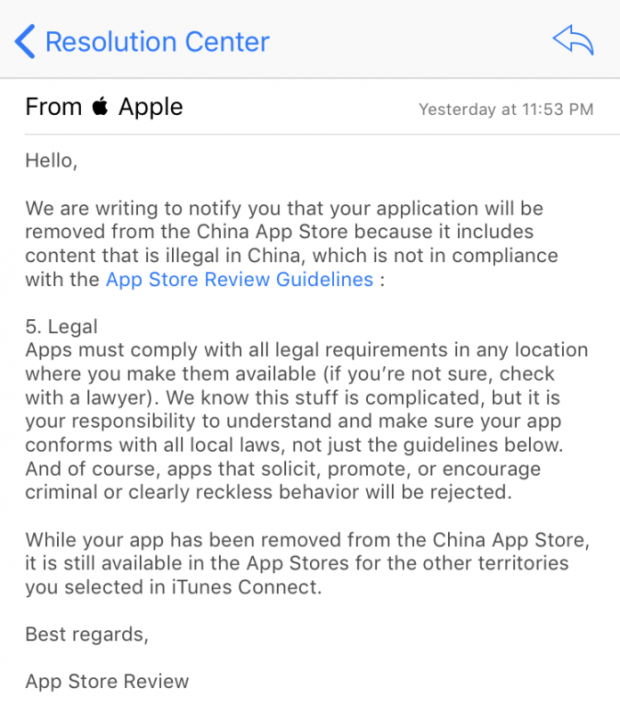
In a statement to TechCrunch, Apple justified the move is a fairly prosaic way, treating the ban as just a case of following local laws as they would with any other country. "Earlier this year China's MIIT announced that all developers offering VPNs must obtain a license from the government. We have been required to remove some VPN apps in China that do not meet the new regulations. These apps remain available in all other markets where they do business."
That's fine, except China isn't just any other country, and many are appalled that a company of Apple's declared values would abet political censorship. Golden Frog, VyprVPN's distributor, said it would be appealing to Apple, arguing that it hoped the company "would choose human rights over profits."
It may not be that simple. Apple makes much of its hardware in China, and it's becoming a big sales market too. China doesn't tend to mess around when Western companies put their foot down on censorship issues, as Google did back in 2010 the search engine has been banned in the country since 2012.
Russia following suit?
Meanwhile, 3,598 miles away from Beijing in Moscow, similar ominous mood music is playing. President Vladimir Putin has just signed a law banning VPNs and proxies in Russia from 1 November. This, along with another law that requires chat apps to attach phone numbers from 2018, is ostensibly justified as a means to block access to extremist content, but critics view the crackdown as yet more political censorship. Especially given we're just seven months away from the next Russian presidential election.
The move will mean Russia joins the likes of Syria and Iran in blocking the use of VPNs. All in all, it's not a good time for the freedom of the internet no matter what non-binding UN resolutions may tell you.
Sign up today and you will receive a free copy of our Future Focus 2025 report - the leading guidance on AI, cybersecurity and other IT challenges as per 700+ senior executives
After a false career start producing flash games, Alan Martin has been writing about phones, wearables and internet culture for over a decade with bylines all over the web and print.
Previously Deputy Editor of Alphr, he turned freelance in 2018 and his words can now be found all over the web, on the likes of Tom's Guide, The i, TechRadar, NME, Gizmodo, Coach, T3, The New Statesman and ShortList, as well as in the odd magazine and newspaper.
He's rarely seen not wearing at least one smartwatch, can talk your ear off about political biographies, and is a long-suffering fan of Derby County FC (which, on balance, he'd rather not talk about). He lives in London, right at the bottom of the Northern Line, long after you think it ends.
You can find Alan tweeting at @alan_p_martin, or email him at mralanpmartin@gmail.com.
-
 Beyond the renewals gap
Beyond the renewals gapIndustry Insights A slow hardware market could be the channel's biggest opportunity
-
 HPE ProLiant Compute DL340 Gen12 review
HPE ProLiant Compute DL340 Gen12 reviewReviews Big on core density, storage, and expansion, HPE's new DL340 Gen12 rack server offers an energy-efficient Xeon 6 solution at an affordable price
-
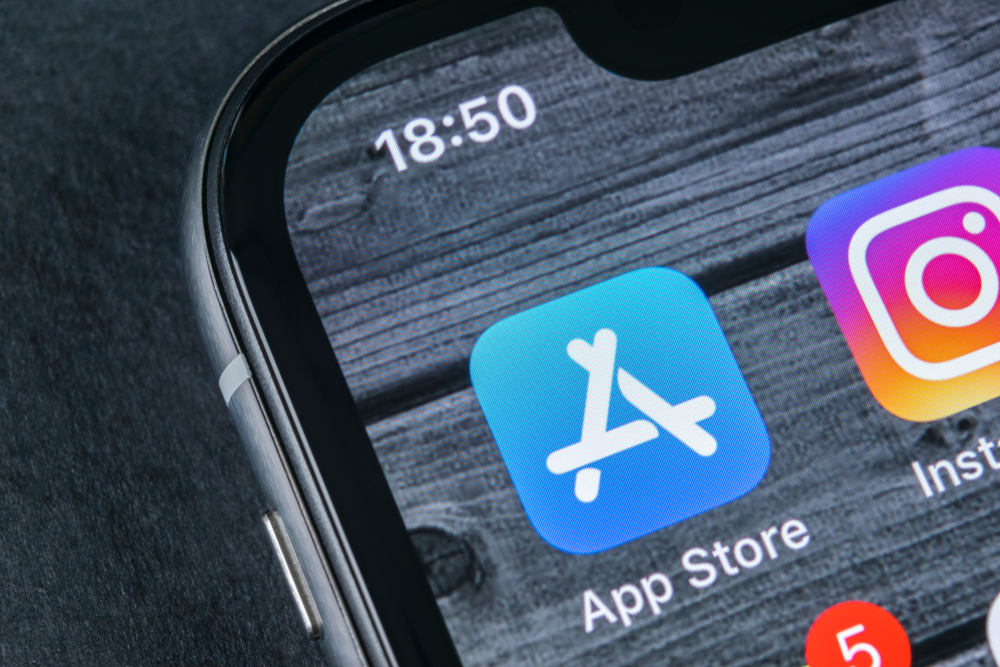 Apple's App Store now allows unlisted apps
Apple's App Store now allows unlisted appsNews Businesses are invited to make their limited-audience apps available only through a direct link
-
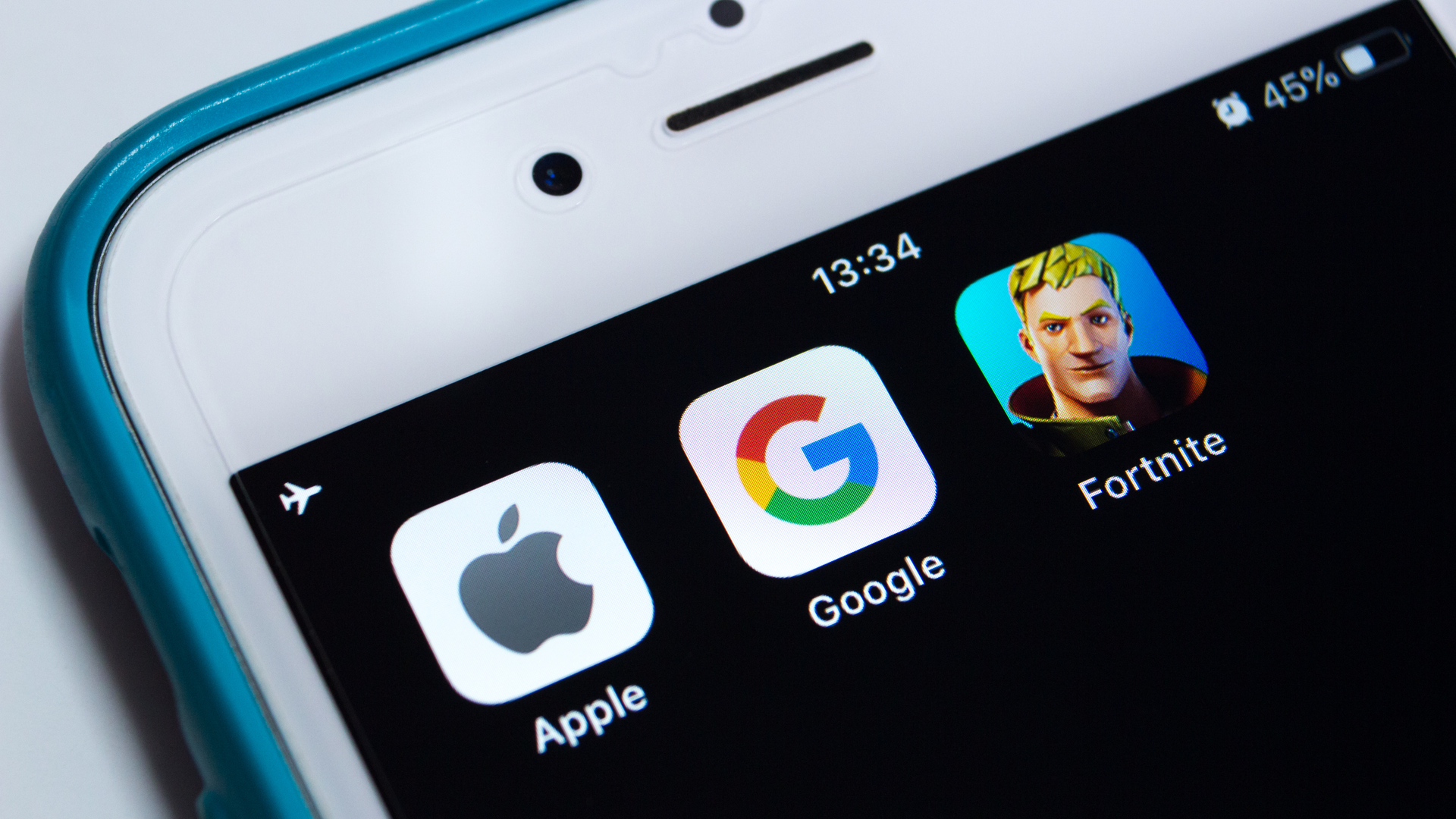 What Apple's Epic battle could mean for the app business
What Apple's Epic battle could mean for the app businessIn-depth The tussle over gaming could have broader effects for the App Store in general
-
 App makers take shots at Apple in Senate hearing
App makers take shots at Apple in Senate hearingNews App developers say the company uses its app store to further its own business interests
-
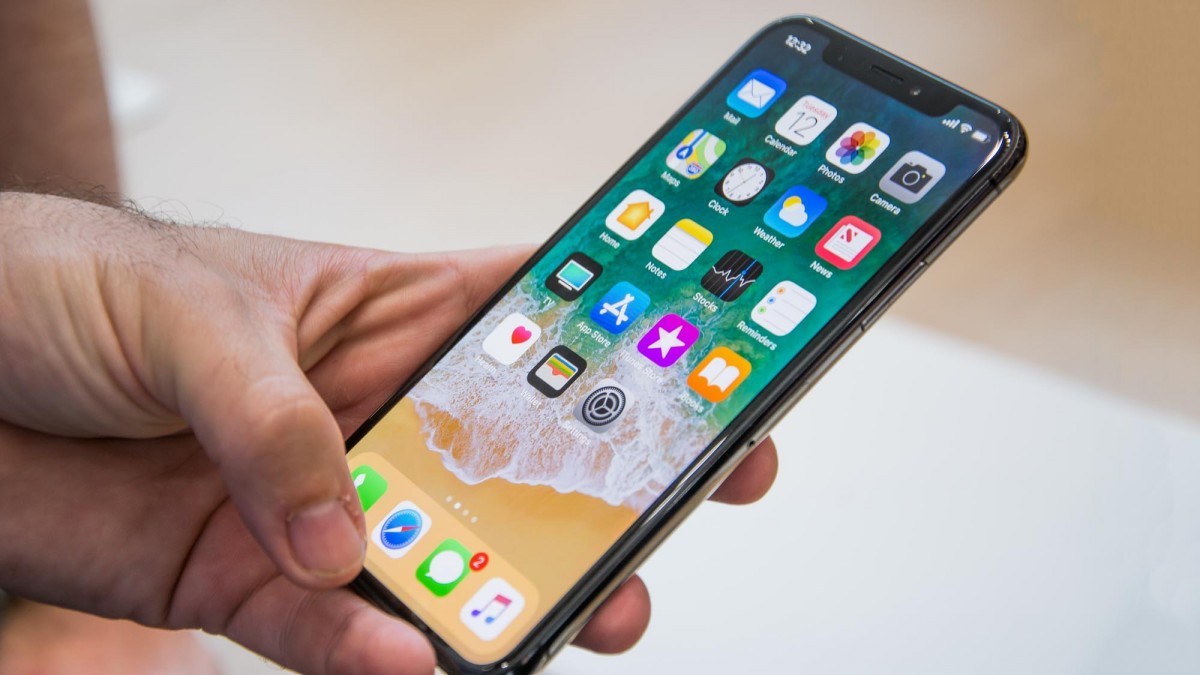 Best iPhone apps for 2019
Best iPhone apps for 2019Best Get the most out of the new range of iPhones with the top business, productivity and collaboration apps
-
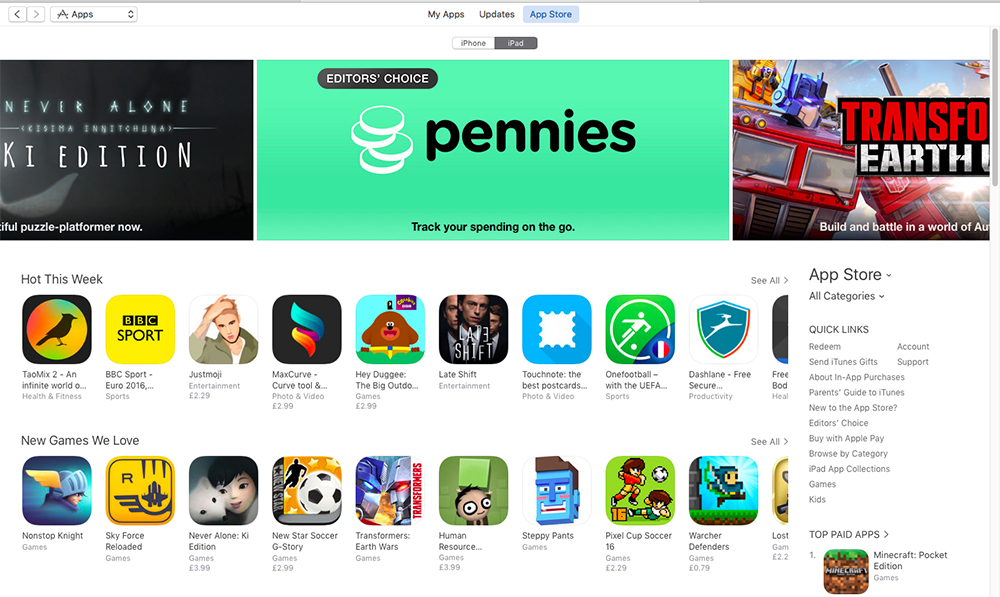 Apple raises App Store prices by 25% thanks to Brexit
Apple raises App Store prices by 25% thanks to BrexitNews App and in-app purchase prices rise in response to the weak pound
-
 Apple outlines plan to take smaller revenue cut from ‘reliable’ apps
Apple outlines plan to take smaller revenue cut from ‘reliable’ appsNews Apps of any kind will also be eligible to offer subscriptions soon
-
 7 Apple inventions that crashed and burned
7 Apple inventions that crashed and burnedIn-depth Even Apple has some skeletons in its closet
-
 Apple App Store surpasses 25bn download milestone
Apple App Store surpasses 25bn download milestoneNews As Apple prepares to introduce the iPad 3, the 25 billionth App Store application is downloaded.
